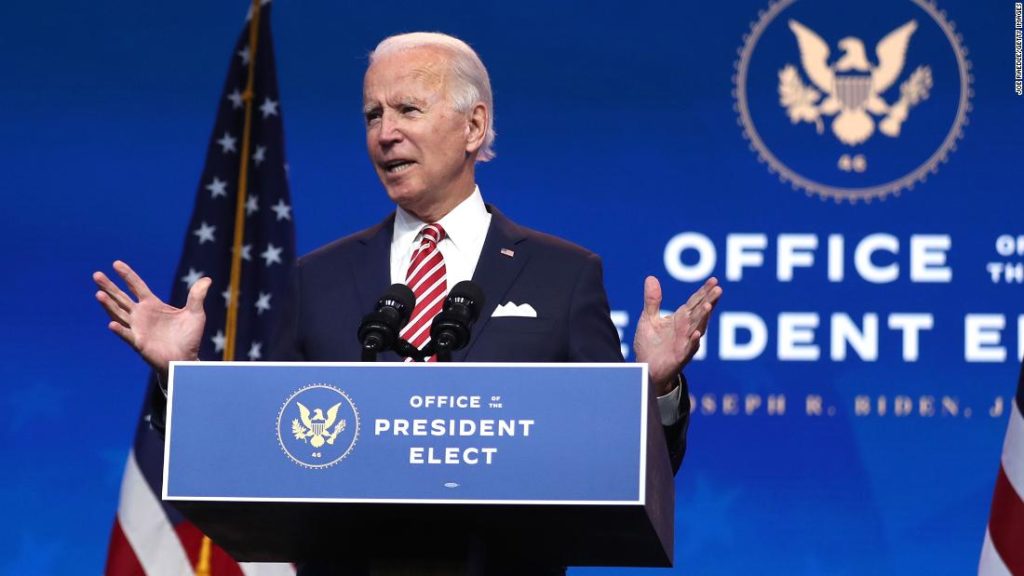“You have to right the market a little bit,” the former vice president told me. “The middle class is getting killed.”
For at least a half century, multiple economic forces have exacerbated disparities within American society. By 2016, a Pew Research Center analysis recently found, the most affluent 5% possessed 248 times the wealth of the least affluent 40%. Wealth improves health; on average, the richest 1% of Americans live more than 10 years longer than the poorest 1%, a study in the Journal of the American Medical Association has found.
Covid has deepened both dismal grooves. Blacks and Hispanics, who lag behind Whites in wealth and income, die from the virus more than five times as often, according to the Institute for Health Metrics and Evaluation at the University of Washington.
The economic dislocations of the pandemic have largely spared more affluent Americans. Buoyant financial markets and home values have protected their wealth, and their ability to work from home has protected their jobs.
Low-paid service workers, by contrast, have been devastated. Many of those who have been lucky enough to avoid being laid off must report to job sites as “essential workers,” heightening their risk of exposure.
Others have faced layoffs due to plummeting demand, and the prospect of permanent job loss from sectors such as leisure travel or in-person retailing that won’t recover soon if ever. While higher-wage employment has risen back to pre-pandemic levels, the number of jobs paying $27,000 or less remains down 19%, according to Harvard’s Opportunity Insights Economic Tracker.
“For people who can work remotely, all this is slightly inconvenient,” observed Massachusetts Institute of Technology economist David Autor. “For many others, they’re going to have to change their livelihoods.”
‘A lot of people have been left behind’
Responding to all this won’t require Biden to rewrite the economic plans he’d already developed, because of who they were always intended to help.
“The agenda was really crafted with the core insight in mind that a lot of people have been left behind for a long time,” noted longtime Biden economic adviser Jared Bernstein.
In the name of rebalancing for fairness and equity, his campaign proposed trillions in tax increases on the affluent to finance trillions in spending on health care, infrastructure, education and other programs.
But Covid raises the stakes for getting his proposals enacted, and suggests subtle shifts of emphasis.
For example, higher minimum wages work best in tight labor markets. So elevated unemployment has diminished the urgency of Biden’s call for doubling the federal minimum to $15, according to Autor.
Workers cast off by suddenly declining industries face a more immediate need for the job training upgrades Biden has proposed. Those responsible for young children and aging parents have grown more desperate for the kind of help Biden’s proposed caregiving subsidies would provide.
The inadequacy of virtual learning required by Covid elevates the importance of his higher proposed school funding levels. Without remedial education programs, low-income families less able to compensate with technology or tutoring will fall farther behind than they already are.
“The learning deficits are going to be so deep we don’t know if they’ll ever be able to overcome them,” said Melissa Kearney, a University of Maryland economics professor who specializes in inequality. “I want to be an optimistic person, but I am so disheartened at this moment.”
Congress remains stalled on more relief
The stalemate augurs poorly for passing a major new economic stimulus once Biden and the new Congress take office in 2021. Mark Zandi, the chief economist for Moody’s, calls a large infrastructure program, to help stave off a backslide into recession, the most potent single step the new president could take to reduce economic disparities.
A year later, that issue remains Biden’s target.
You may also like
-
UK coronavirus variant has been reported in 86 countries, WHO says
-
NASA technology can help save whale sharks says Australian marine biologist and ECOCEAN founder, Brad Norman
-
California Twentynine Palms: Explosives are missing from the nation’s largest Marine Corps base and an investigation is underway
-
Trump unhappy with his impeachment attorney’s performance, sources say
-
Lunar New Year 2021: Ushering in the Year of the Ox

